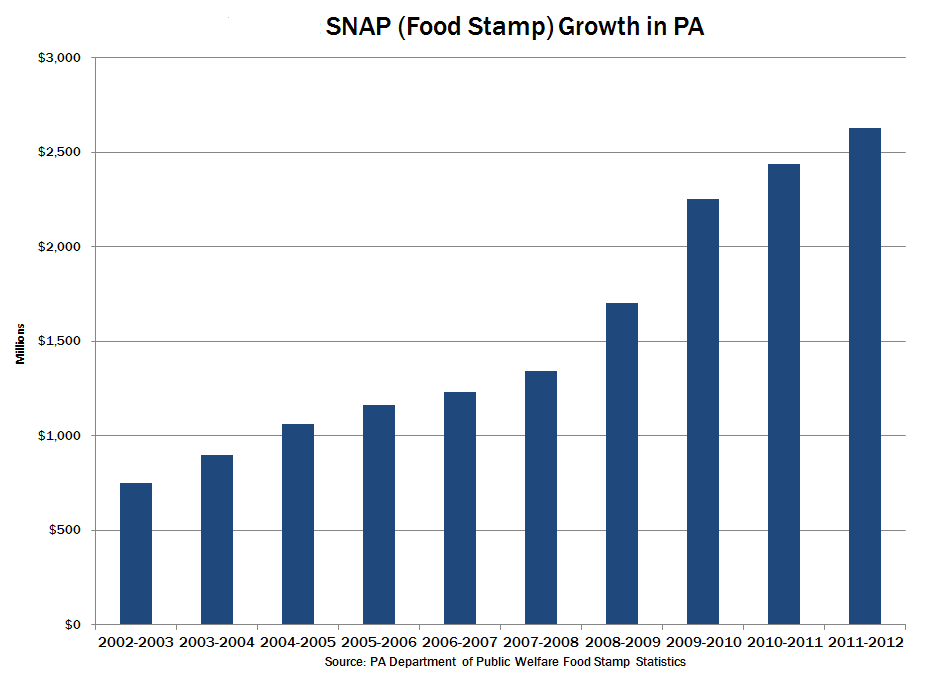Media
Do Millionaires Need Food Stamps?
For the past few years, politicians in Harrisburg and Washington have considered it a “success” to put more families on welfare. The result is an abundance of loopholes that allow wealthy individuals—such as a lottery millionaire from Michigan—to legally collect food stamps.
In Pennsylvania, welfare eligibility and spending—including for food stamps—has exploded, threatening to crowd out everything else in the state budget. The Department of Public Welfare’s decision to apply an asset test to food stamps is one effort to reserve limited taxpayer resources for the truly needy.
Pennsylvania’s spending for food stamps—now formally called the Supplemental Nutritional Assistance Program (SNAP)—has more than doubled in just eight fiscal years. Advocates of higher government spending poo-poo this growth, saying benefit programs should increase in times of economic distress and that SNAP enrollment is expected to decline as the economy recovers. However, SNAP’s costs were rising even during a period of economic growth. In 2002, expenditures for the Pennsylvania program totaled $750 million. By 2006, costs had risen to $1.2 billion.
 An asset test is a common-sense reform to ensure those who truly need aid get it. According to the Wall Street Journal, 35 states have abolished asset tests, enabling billionaires like Bill Gates to be eligible for food stamps if his income was low for a year. In fact, the department has stated the change will only affect about 2 percent of current SNAP beneficiaries.
An asset test is a common-sense reform to ensure those who truly need aid get it. According to the Wall Street Journal, 35 states have abolished asset tests, enabling billionaires like Bill Gates to be eligible for food stamps if his income was low for a year. In fact, the department has stated the change will only affect about 2 percent of current SNAP beneficiaries.
Unfortunately, this problem of being “poor on paper” is not confined to food stamps. Better asset tests are desperately needed in DPW’s Long-term Care program. Today it is common practice for seniors to “hide” their assets through the use of trusts, annuities, promissory notes, and other techniques used to shelter assets from Medicaid LTC financial eligibility limits. Taxpayers could save hundreds of millions each year if we tightened asset loopholes in order to encourage Pennsylvanians to plan for retirement and buy long-term care insurance instead of becoming dual eligibles qualifying for Medicaid and Medicare.
Of course the most vocal adversaries of this reform are those in the Welfare Industrial Complex—those who profit off the poor. Cato’s Tad Dehaven pointed this out yesterday by listing the poverty advocates quoted in a Philadelphia Inquirer story.
A successful welfare system is one that doesn’t grow faster than the state’s economy, serves the truly needy and encourages earned success. DPW’s newest reform is a small step towards that greater goal.